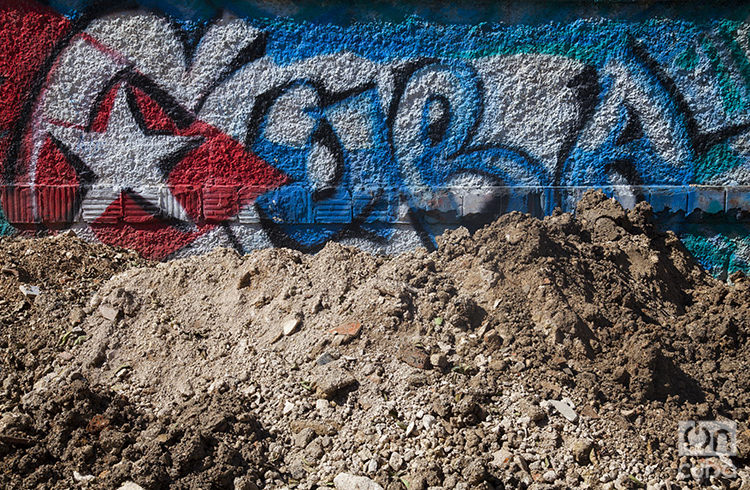Hurricane Irma’s damages in Cuba, like in many of the countries through which it passed, are incalculable. Figures have been given and will continue being given, undoubtedly shocking, but the human cost that accompanies the economic one has no way of being quantified.
To mitigate the victims, numerous persons and organizations have joined the effort of governments and international entities that have already started sending donations to the island. Some of the initiatives are carried out directly while others use the digital means to encourage donors.
Global Links, an organization with 25 years of experience in Cuba, according to what it says on its website, is carrying forward a campaign to deliver medical equipment and supplies for the healthcare services damaged by Hurricane Irma.
For this it is working on the assessment of the damages with Cuban and PAHO /WHO specialists, and aims to develop a project to strengthen the public health system and improve its long-term sustainability, to which one can contribute through the digital contacts of the organization.
Campaigns related to the donation of funds for those affected by Hurricane Irma, not only those of the island but of the entire region including the state of Florida, have also been started through the site GoFundMe.
One of them is being carried forward by Cuban actress Mariela Garriga, a resident in Los Angeles. Her goal is “to collect funds and help buy food, shelter and general provisions for Cubans affected in the area of Havana’s Malecón.
Garriga specifies that “due to the embargo it’s not easy to support the local community with easy transactions” and explains she will personally manage the donations to be sure they get to Cuba. “We’re going to publish in what we have used the funds as soon as the campaign has concluded.”
Another case is that of Jhon Cores, a young Cuban American whose organization Inspire Cuba on previous occasions has been placed at the disposal of humanitarian campaigns through GoFundMe. Now it is doing it again after Irma’s passage.
Meanwhile, Convoy of Hope has sent food and emergency supplies and aid to the victims of the hurricane in the United States as well as in Haiti and Cuba, while international organizations like the UNDP, WFP, the Red Cross, UNICEF and Oxfam are also promoting the collection of funds and the sending of water, food, medicines and other resources to the victims.
One of the safest means to get donations to the island is Caritas Cuba, whose prestige has been established in the work carried out during previous disasters, like Hurricane Matthew.
Created in 1991 by the Cuban Conference of Catholic Bishops, Caritas Cuba is a Catholic Church institution with a vast experience in humanitarian interventions and has the backing in the United States of the Friends of Caritas Cuba Association, a non-profit organization.
This organization will already start sending this Friday the first cash donations from abroad. Its president, Consuelo Isaacson Aróstegui, specified that the aid for Cuba is sent to a special Caritas Cuba account in the Vatican Bank. “It is a very safe way to directly send money to the island,” she said. “The money is coming in very fast thanks to Facebook, the website and the regular donors whom we have contacted.”
The The New Cuba website advices its readers what to do to help Cubans in the face of Hurricane Irma’s damages. For those opting to travel to the island they provide information on the airport restrictions, while for those who are not going to fly it recommends the sending of money through the Western Union, the recharging of cell phones and Internet accounts.
The organizations CubaOne and Give2Cuba are also promoting trips to help Cubans. Their initiative comprises spending five days helping the communities that most need cleaning and reconstruction in three of the provinces most affected by the hurricane: Ciego de Avila, Sancti Spíritus and Villa Clara, in which they will work with local organizations and leaders in October.
Travelers will agree to finance their trip and donations with the collection of funds through Crowdrise. They would cover, among other expenses, the round trip to Cuba, the visa and the obligatory health insurance, a registered bag of relief supplies and accommodations in private homes.
Those wanting to participate in this initiative can register online on Cubaone.org/Irma-relief, and they will receive the immediate response from the organizers.
Meanwhile, the Basque-Cuban Euskadi-Cuba Friendship Association, with the collaboration of Cubainformación TV’s site, has opened an account for the collection of funds for the victims on the island. The bank account, says the post, “is thought out for donations by persons, teams, groups, associations and institutions who thus wish to channel their contributions.”
Euskadi-Cuba has made the commitment to specify the concrete destination of the funds and gives the email medios@euskadicuba.org for any consultation. The data of the account where the donations can be made appear on Cubainformación TV’s site.










